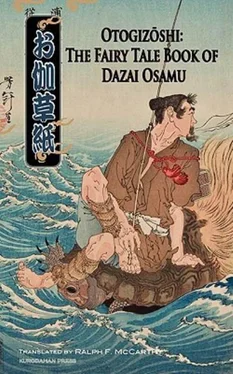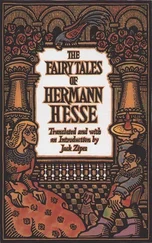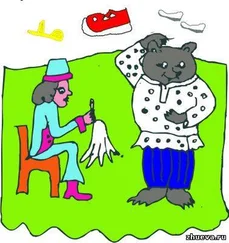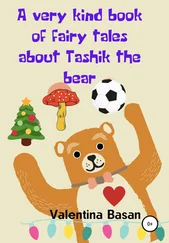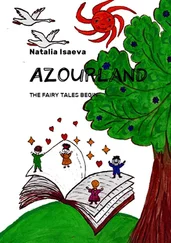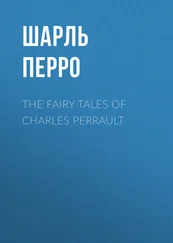Compared to such a box, Urashima’s souvenir of the Dragon Palace has no charm or appeal whatsoever. All it contains is smoke and an instant ticket to extreme old age. Even if a tiny star of hope had remained at the bottom of the seashell, Urashima was now three hundred years old. To give hope to a tercentenarian would be little more than a cruel joke. Hope is useless to him now. How about slipping him a little of that Divine Resignation? Then again, any man three centuries old is going to be resigned already, whether or not you bestow such an affected keepsake upon him. In the end, there’s nothing you can do to mitigate what has happened. No way to save Urashima. Look at it any way you like, this would seem to have been a singularly ghastly gift. But we can’t just throw in the sponge here. What if Westerners were to get wind of this and run around claiming that Japan’s fairy tales are more brutal or gruesome than their darling Greek myths? That would be too mortifying for words. In order to avoid dishonoring the fabled Dragon Palace, therefore, I am determined to find an exalted meaning behind that puzzling gift.
It may be true that a few days in the Dragon Palace are equivalent to a few centuries on land, but why was it necessary to bundle up all the time that had dripped past and give it to Urashima to carry home with him? If he had simply been transformed into a white-haired old man the moment he set foot on land, one could appreciate the logic. But if, in her mercy, Princess Oto had wanted Urashima to remain a young man forever, why go to the trouble of giving him a gift too volatile to be opened? She could have just kept the shell in some dark corner of the palace. It was like asking a guest to cart away all the urine and feces he’d excreted during his visit-a spiteful and ugly thing to do. No, it was impossible for me to imagine Princess Oto, with her smile of Divine Resignation, scheming against her man like some battle-axe from the tenements. I just didn’t get it. I pondered this issue for a long time, and only recently do I feel that I’ve begun to understand. Our mistake is that we consider what happened to Urashima to have been a tragedy, a great misfortune. But not even the picture books, when depicting the three-hundred-year-old Taro, show him looking terribly unhappy.
In the blink of an eye,
he became a white-haired old man.
That’s how it ends. We worldly folk, on hearing this, are the ones who blindly pass judgment. “The poor fellow!” we say, or perhaps, “What a fool!” But for Urashima, suddenly becoming three hundred years old was most decidedly not a misfortune. Had he found salvation in a tiny star of hope, I must say that it would have seemed to me a childish and artificial ending. Urashima was saved by the transformative puff of smoke itself. There’s no need for anything to be stuck to the bottom of the shell. Allow me to put it this way:
Time and tide are man’s salvation.
Oblivion is man’s salvation.
It’s possible to view Princess Oto’s gift as the ultimate expression of the Dragon Palace’s exquisite and noble hospitality. Isn’t it said that memories only grow more beautiful with time? As for the unleashing of those three hundred years, that too had been entrusted to Urashima’s own emotional state. He was being granted unlimited license even now that he was back on land. If he hadn’t despaired, he wouldn’t have turned to the shell. It was only to be opened if he simply couldn’t think of anything else to do. Once it was opened, poof !-three hundred years and instant oblivion. I won’t belabor the point any further. This is the sort of profound compassion that permeates Japanese fairy tales.
It’s said that Urashima Taro lived another ten years as a happy old man.
The rabbit in the story of Click-Clack Mountain is a young female, and the tanuki badger she so thoroughly destroys is an unattractive male who’s madly in love with her. There’s no doubt in my mind that these are the true facts of the case.
The incident is said to have occurred in the province of Koshu, in the hills behind what is now the town of Funazu, on the shore of Lake Kawaguchi (one of the Five Lakes of Mount Fuji). There is a rowdy, rough-and-ready side to human nature in Koshu, and perhaps that’s why this tale is somewhat more hard-boiled than other Japanese children’s stories. It’s steeped in cruelty right from the start. I mean, “grandmother stew”? It’s downright gruesome. There’s no way to make an outrage like that seem comical or witty. Let’s face it: the tanuki pulled a monstrous trick. Once we find out that the old woman’s bones have been scattered beneath the floorboards, we know we’ve entered a realm of grisliest darkness.
As so-called children’s literature, therefore, I’m afraid the original tale must accept its current ignominious fate of being banned from sale. Contemporary picture books of Click-Clack Mountain seem, wisely, to leave it at the tanuki merely injuring Obaa-san and fleeing. That prevents the books being banned, which is all well and good, but now the revenge the rabbit exacts upon the tanuki seems excessive; and, in any case, the rabbit’s methods have nothing in common with the noble tradition of cutting down one’s enemy in a gallant and straightforward manner. No, it’s burn him half to death, torment and tease him, and finally send him gurgling to the lake bottom in a dissolving boat of mud. It’s all about deception, from start to finish. This is hardly a technique sanctioned by Bushido, our nation’s Way of the Warrior. If the tanuki has actually tricked Ojii-san into eating a stew containing the flesh of his own murdered wife, then he is guilty of a loathsome crime and we are less outraged at the torture to which he is subsequently subjected. But to have the tanuki merely injure the old woman-albeit out of consideration for the effect on impressionable young minds, not to mention the fear of being banned from sale-is to make the pain and humiliation meted out to him, culminating in that inglorious death by drowning, seem more than a bit unjust.
This tanuki badger had been living a leisurely life in the mountains, a mischievous but fundamentally harmless moocher and ne’er-do-well, when he was captured by the old man. Facing a hopeless situation and on the verge of being made into tanuki stew, he writhed in agony as he racked his brains for a way out and at last resorted to tricking the old woman in order to save his own skin. Let us be clear: there can be no excuse for the heinous grandmother stew scheme, and no punishment could be too severe for its perpetrator. But if the tanuki merely scratched the old woman, injuring her, as in the picture books nowadays, the sin seems far less unforgivable. The tanuki, after all, was fighting for his life and so focused on what might be called justifiable self-defense that perhaps he injured the old woman without even intending to do so. I was in the bomb shelter reading Click-Clack Mountain , the picture book, to our five-year-old daughter, who has the misfortune of resembling her father not only physically but intellectually, when, to my surprise, she said, “The poor tanuki!”
Granted, this use of the adjective “poor” is something she’s learned just recently and uses quite indiscriminately. Poor this, poor little that. On this particular occasion, she was using it as a transparent ploy to affirm an emotional bond with her sentimental pushover of a mother. Furthermore, it’s possible that, on accompanying her father to the nearby Inokashira Zoo recently and seeing the band of tanuki badgers bustling tirelessly about in their cage there, the child had become convinced that these creatures are worthy objects of our affection. It may be that her sympathy for the tanuki in Click-Clack Mountain was based on nothing more complicated than that, but in any event, the judgment of a pint-sized partisan in my household is nothing we need take too seriously. Her reasoning lacks solid foundation. The impetus behind her sympathy is unclear and her opinion therefore scarcely deserving of our attention. Irresponsible though her remark may have been, however, I couldn’t help but think she had a point. The rabbit’s revenge was too extreme. One can always somehow explain it away to a child this small, but wouldn’t an older child, already educated in the ethics of Bushido and the square fight, consider the rabbit’s methods “dirty,” to say the least? Hmm , the fool of a father says to himself and furrows his brow. This is a serious problem .
Читать дальше
